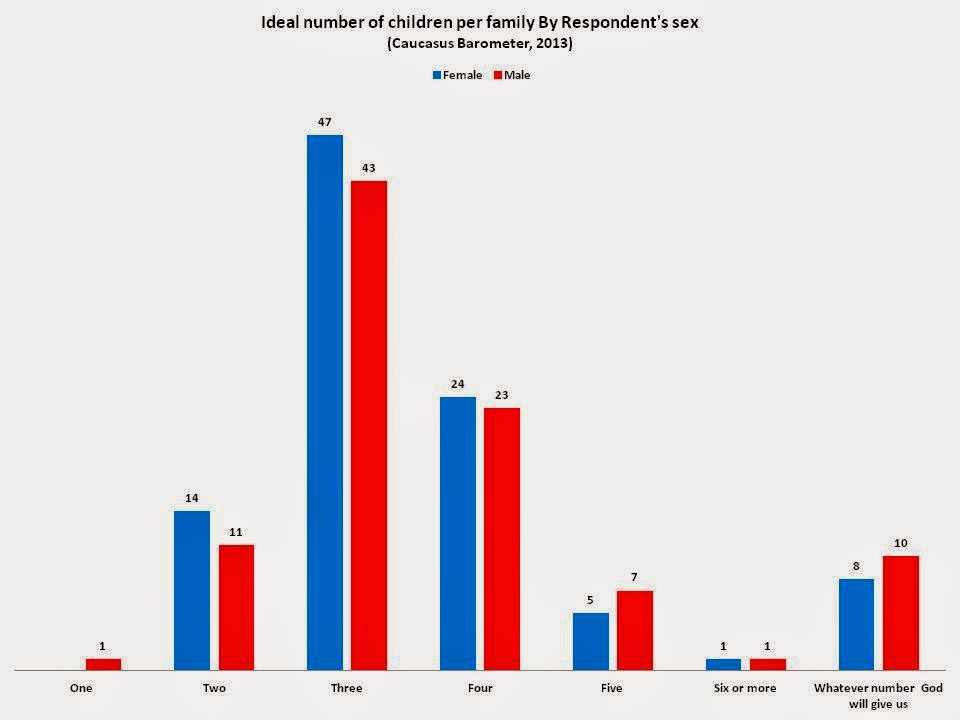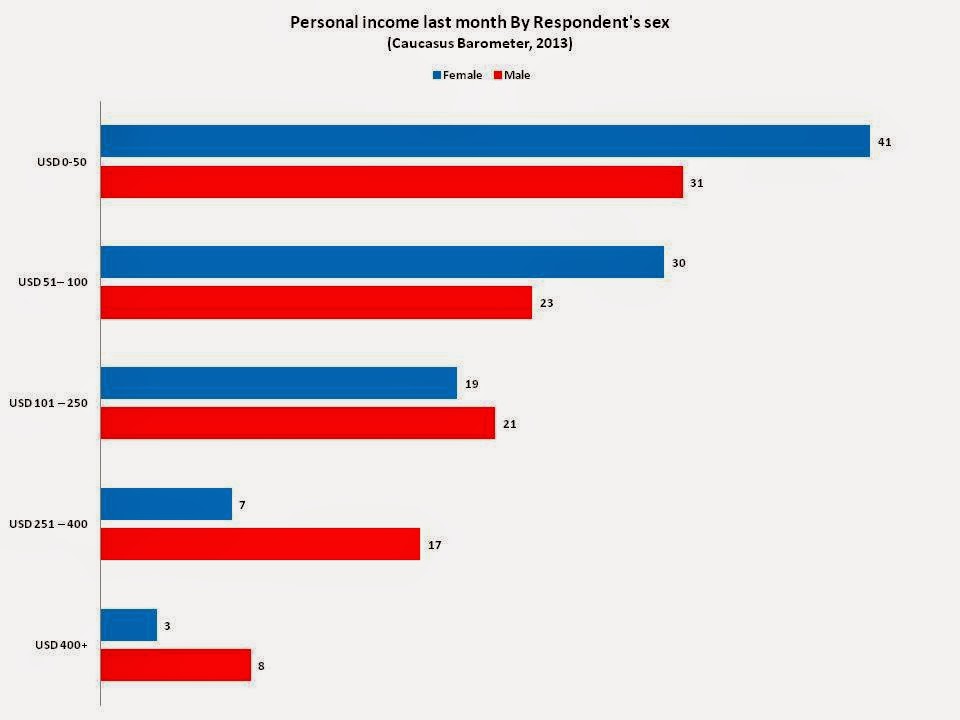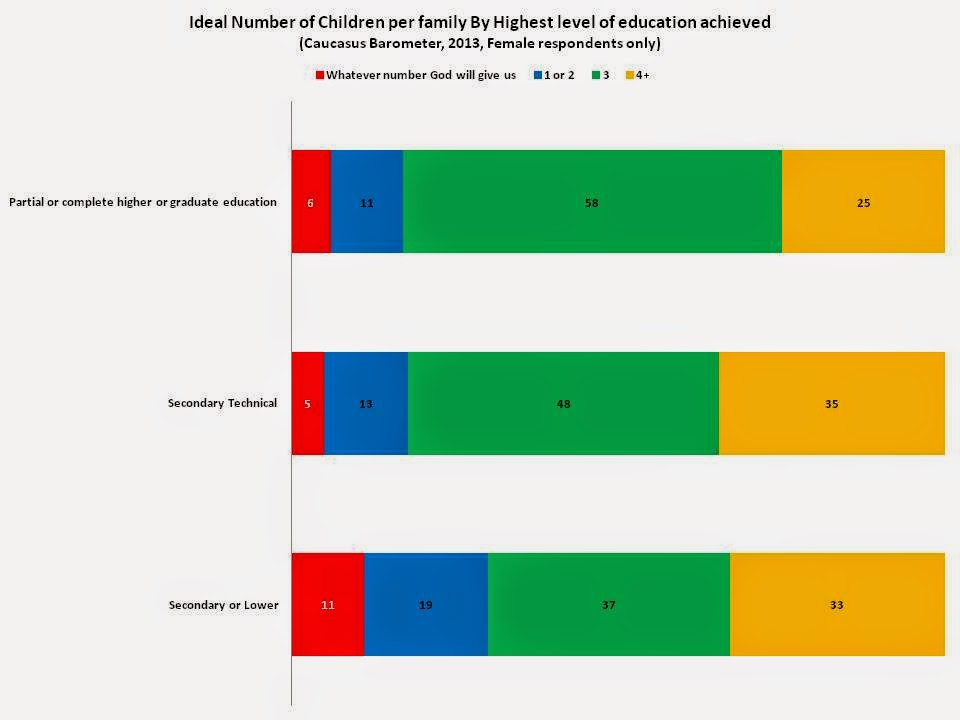
Women with a higher and secondary technical education are more likely to want three children. Women with secondary technical and secondary or lower education are more likely to say they want four or more children. The same difference between figures is apparent for the option “whatever number God will give us”- more women with secondary or lower education gave positive answers compared to the other two groups. Thus, there are different perceptions of the ideal number of children by education level.
Note: For the question “What is the highest level of education you have achieved to date?” the options incomplete higher education completed higher education (BA, MA, or Specialist degree) and post-graduate degree are combined with the partial or complete higher or graduate education option. No primary education, primary education (either complete or incomplete), incomplete secondary education and completed secondary education are combined with secondary or lower option.
This blog post has reviewed whether a woman’s educational level is related to a woman’s willingness to have children in Georgia. The post has compared personal income, education level and the ideal number of children per family for men and women. It has showed data on the ideal number of children by education level for women. From the data, we can see that education level might have a minor effect towards women’s aspiration to have children in Georgia. Although, education level does not appear to effect women’s aspirations towards childbearing in general – since three is the ideal number of children according to most men and women in Georgia. However, while the difference among women with different educational backgrounds is still notable, education is not the only influence on women’s aspiration to have children in Georgia.
For further reading, please visit the CRRC blog post on gender inequality in the South Caucasus. Information and analysis on gender statistics and women’s socio-economic conditions can be found in the annual report of the National Statistics office of Georgia. Also, please, review the Center for Social Sciences’ report’ report on attitudes of the Georgian population on gender issues.
By Maka Chkhaidze














